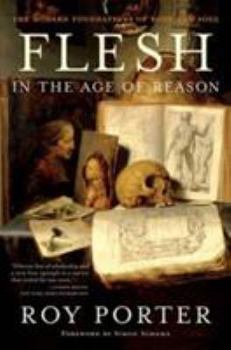Flesh in the Age of Reason: The Modern Foundations of Body and Soul (Revised)
Select Format
Select Condition 
Book Overview
In this "readable and humane book" (Los Angeles Times Book Review), the late historian Roy Porter traces the course of man's philosophical journey from the superstitious, spiritually obsessed Dark Ages to our modern perspective, based on reason and grounded in the body. He demonstrates how the explosion of rational thought and scientific innovation during the Enlightenment began to change our understanding of the flesh and its relation to the soul. No longer simply a "mortal coil," the body eventually became the location, and source, of our conscious selves. Porter examines this paradigm shift through the eyes of the great thinkers of history, from Descartes to Voltaire to Lord Byron, summarizing and explicating their beliefs "in a prose that leaps resplendently from the page" (Harper's).
Related Subjects
16th Century 17th Century English Literature Essays Historical Study & Educational Resources History Humanities Literary Criticism Literary Criticism & Collections Literature Literature & Fiction Medical Books Modern (16th-21st Centuries) Movements & Periods Philosophy Politics & Social Sciences Renaissance Social History Special Topics World





